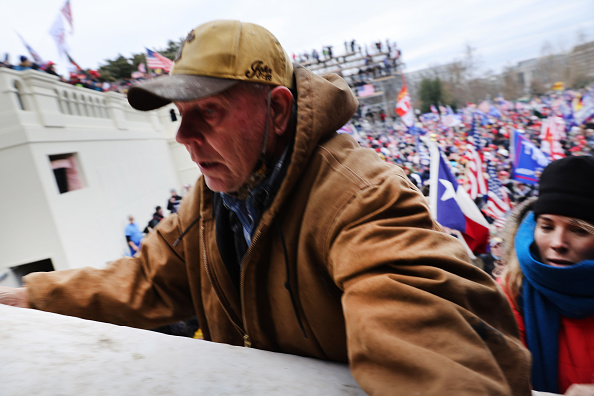
(WASHINGTON) -- Jury selection is underway Tuesday in one of the most complex and crucial cases being brought by the Justice Department in connection with the Jan. 6 attack on the U.S. Capitol, as five members of the Oath Keepers anti-government group -- including its founder Stewart Rhodes -- stand trial on charges that they conspired together to oppose by force the lawful transition of presidential power.
The trial, which is expected to last over a month, could prove to be the toughest test yet for prosecutors in the DOJ's sprawling investigation of the Jan. 6 attack, which has so far resulted in federal charges against nearly 900 defendants.
Failing to secure convictions against Rhodes or others in the case with the rarely-brought seditious conspiracy statute, experts say, could prove to be a significant setback to the department's ongoing efforts to target alleged domestic extremist groups driven to carry out acts of violence against the government.
Rhodes, Thomas Caldwell, Kelly Meggs, Kenneth Harrelson and Jessica Watkins are among the first group of Oath Keepers to go to trial for seditious conspiracy and multiple other felony charges connected to their alleged actions surrounding the Capitol attack. Four other members of the group are scheduled to go to trial in late November.
The government has already secured three guilty pleas for seditious conspiracy from Oath Keepers Joshua James, William Todd Wilson and Brian Ulrich, all of whom admitting they joined the group with the goal of using force to stop the peaceful transfer of power from then-outgoing President Donald Trump to President Joe Biden.
The group is alleged to have stashed firearms and ammunition at hotels surrounding Washington, D.C., on Jan. 6, 2021, and used encrypted communications to coordinate their actions breaching the Capitol and seeking out lawmakers involved in the certification of Biden's election win.
Prosecutors say images they have submitted in court filings filings show members of the group, clad in tactical gear, moving through the pro-Trump mob up the Capitol steps in a military-style "stack" formation to enter the building.
Prosecutors allege that multiple members of the group remained back at a Ballston, Virginia, hotel during the attack as part of a "Quick Reaction Force" that was tasked with rapidly transporting weapons to D.C., possibly by ferrying them up the Potomac River, if they were called up by Rhodes.
While Rhodes is not alleged to have entered the Capitol building itself, prosecutors have singled him out as a lead coordinator in calling on various chapters of the group around the country to come to Washington, and calling on members to ready themselves for a potential "civil war" to keep Trump in office.
The trial, in D.C. district court, is expected to feature testimony from dozens of witnesses, with prosecutors planning to introduce thousands of private messages sent between members of the group leading up to and following the Jan. 6 attack that detail their alleged plans to keep Biden from taking office.
The federal judge overseeing the case, Amit Mehta, recently rejected a last-minute effort from Rhodes to delay the trial and replace the legal team that had represented him since his arrest in January of this year.
Mehta has similarly rejected requests from other members of the group to delay the trial, as they argued that potential public hearings or the release of an interim report by the House select committee investigating the Jan. 6 attack would serve to taint any jury impaneled in the case.